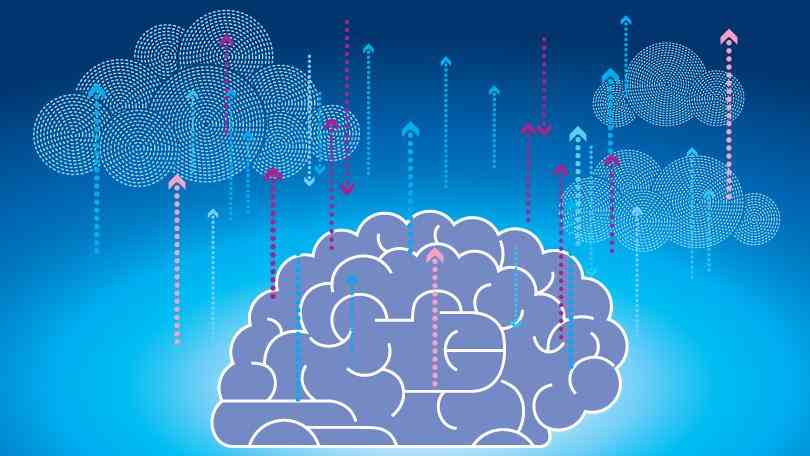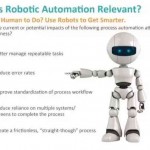Role of Big Data in Future of AI

Big data trends are shaping AI in 2017, and their convergence has emerged as the most important development. It is shaping the future of how companies generate business value from their data and analytics capabilities.
Both Artificial Intelligence (AI) and Big Data are shaping a new reality for every type of businesses in 2017. According to Nasscom, “Big data analytics is predicted to become $16 bn industry by 2025.” These technologies have brought a great change in value generation and creating new opportunities for growth and increase in revenue across all sectors.
As the only way is forward, these advanced digital innovations have brought challenges for employers in many aspects, and now they need to think, plan, and work more strategically to make out the most of these fast-changing technologies. To develop valuable insights, they need to understand about Data Science. Businesses can make their employees take big data training course to master the concepts of data analytics and help move the business ahead.
How can businesses use these technologies to empower employees to analyze different types of data, make productive decisions and upskill to solve both business and technology related issues and embrace the changing landscape?
From insurance to manufacturing and retailing and from healthcare to banking and financial services, this post roundup the predictions and key developments from 5 sectors:
- Digital disruption is real- Insurance
From the survey of Irish Insurance, CEOs concluded that the focus of industry leaders is on innovation to drive growth for 2017 amidst economic challenges, international competition, and changing market conditions. About 79% of Irish insurance leaders have confirmed these technologies have opened up more opportunities to grow now as compared to three years ago, in the first Insurance Ireland-PwC(October 2016).
According to the Future of Work report, in the Insurance sector, “ Data analytics is playing a central role in shaping business models while opening commercial opportunities.” “The insurance companies without data-centric approach may face competitive irrelevancy in future,” it warns.
The data harvesting, interpretation, and monetization that every digital interaction generates or what we call a (“Code HaloTM”) is the building block of being an insurer in the 21st century.
According to The Work Ahead, what more interesting is the pace that AI has become a necessary technology to leverage big data. Experts have predicted, between 2017 and 2020, many industry leaders will separate from the pack by integrating AI along with its sub-components like machine learning, neural networks, decision theory, etc. into the algorithms that give rise to actuarial models and exclusive quotes.
- Data is an intangible Asset-Banking and Financial
The Future of Work report also predicts, in the Banking and Financial Sector, AI-led automation will speed up the pace of middle and back-office modernization.
“Data is the intangible asset that constitutes as much as 84% of the market value of companies mentioned in the S&P 500 index. Banks and financial institutions are far better when it comes to setting up of channels to deliver services by using data those channels provide.”
Big data facilitates for AI as it grants the required capacity for understanding algorithms, to consume data, and use it to make decisions more strategically. For example, approve a loan or to open a branch office.
“When you start recognizing your digital disrupters, they become your best friends. This approach makes a lot of sense in growing technological areas like AI, the blockchain, and the Internet of Things, among others.”
- Boosting the need for innovation skills-Manufacturing
In Ireland, today the manufacturing industry recruits 205,700 people directly, and when it comes to indirect employment, it employs 400,000 people across all skills levels.
As per Minister for Jobs, Enterprise and Innovation, Richard Bruton in the “Making it in Ireland: Manufacturing 2020” Report, “It is a key driver of innovation and an integral part of Ireland’s economic fabric.”
“AI and Analytics are now transforming global ‘making’ processes and encouraging the requirement for innovation skills in employees,” stated by the Future of Work. “Stepping ahead of these systems of intelligence is essential, and will upsurge analytics skills required by 2020”.
“The two pre-eminent technologies that will affect manufacturing sector by 2025 are sensors and IoT stand. This will likely to show the instrumentation of every product, and more the smarter products will be, more will be the data. From 3-D printing to sensors and robots, a variety of autonomous and semi-autonomous systems are converging to become an important part of enterprise business architecture.”
The key is integrating the skills of employees along with advanced technologies: “The automated systems together with manned systems, derive new outcomes by integrating all participants – suppliers, partners, materials scientists, machinists and heads of safety – in a better way through digital approaches.”
- The era of hyper-digital transformation-Retail
According to many digital leaders Business analytics, AI, concerns about security and privacy, digital technology regulations and practices and this will impact work significantly, as will “the condition of being hyper-connected.”
They stress the need for innovative designs, precise language, and excellent communication skills and to switch from face-to-face interactions to digital ones, where the design of the digital interface becomes important, and the communicating medium moves to online chat, AI-supported chatbots, audio, and video.
Big data trends are revolutionizing retail and retailers expect more adoption of digital technologies between now and 2020. This is the age of hyper-digital transformation as nine additional digital technologies have joined the list of technologies. About 25% of digital leaders believe that the technologies will generate a great business impact: artificial intelligence, collaboration technologies, telepresence devices, software bots, IoT/sensors, digital currency, hardware robots and telematics and sharing economy platforms.
- More strategic work-Healthcare
Big Data Healthcare Market is expected to reach $27.6bn by 2021. The drivers in the transformation of the healthcare industry will be automation and artificial intelligence.
“With the increase in automation of tasks, work will become more strategic.” Due to an expected significant impact from physical and software robots, by 2020, AI and analytics will top the new investment agenda.
If we talk about the top ways as for how work transformation will take place between now and 2020, healthcare providers alike named automation, artificial intelligence and bots will be the top influencers bringing change.

Kalyan Banga226 Posts
I am Kalyan Banga, a Post Graduate in Business Analytics from Indian Institute of Management (IIM) Calcutta, a premier management institute, ranked best B-School in Asia in FT Masters management global rankings. I have spent 14 years in field of Research & Analytics.











7 Comments
Robotic Process Automation - Fusion Analytics World
December 18, 2017 at 2:06 am[…] process automation (RPA) is the process of using a software with Artificial Intelligence (AI) and Machine Learning (ML) capabilities to handle high-volume, repeatable […]
Microsoft Build 2018: Big Changes for MS Excel Announced - Fusion Analytics World
May 14, 2018 at 1:57 am[…] for Excel also can work with Azure Machine Learning services for forecasting & trends using artificial intelligence (AI) capabilities. However, while the Azure Machine Learning services capability was described at […]
Mobilewalla: Global Mobile Consumer Audience Platform - Fusion Analytics World
May 14, 2018 at 7:25 am[…] (Yr.): 2011 Mission: Mobilewalla is a next generation data company that employs big data, artificial intelligence, machine learning, and creativity to power the most granular consumer intelligence platform on the […]
How Citizen Data Scientists can Bridge Gap in Data Skills? - Fusion Analytics World
May 22, 2018 at 1:49 am[…] in AI and cloud-based massive parallel processing are dramatically simplifying the process of building […]
India’s largest Data Science Event - Data Science Congress 2018 Concludes Successfully - Fusion Analytics World
June 4, 2018 at 6:31 am[…] 2018 discussed Artificial Intelligence, Big Data and Machine Learning across politics, logistics, telecom, media & entertainment, banking, […]
How Artificial Intelligence (AI) Is The New Business Intelligence – user's Blog!
January 25, 2019 at 8:02 pm[…] this, AI makes use of big data as well as various machine learning concepts, natural language parsing, and other fields too. […]
How Artificial Intelligence (AI) Is The New Business Intelligence | Adext Blog
February 25, 2019 at 5:25 pm[…] this, AI makes use of big data as well as various machine learning concepts, natural language parsing, and other fields too. […]